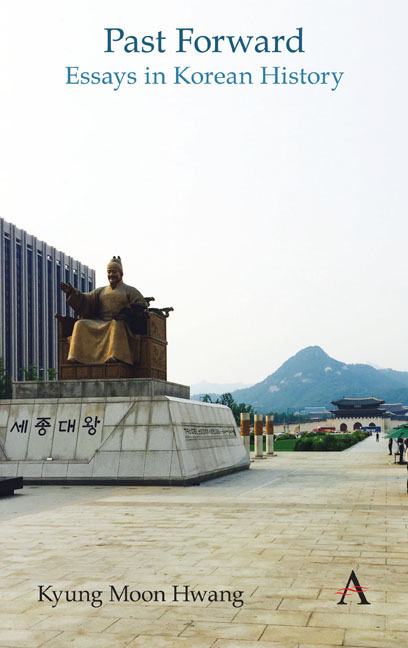Book contents
- Frontmatter
- Contents
- List of Figures
- Foreword
- Chronologies of Korean History
- Themes
- Acknowledgments
- Note on Romanization and Spelling
- Part I Circulating History
- Part II Durable Traditions
- Part III Ancient Remains
- Part IV Dynastic Depths
- Part V Modern Origins
- Part VI Challenges of Nationhood
- Part VII History Makers
- Part VIII External Presences
- Part IX Trials of Modernization
- 62 Summer Symmetries
- 63 The Korean War as a Turning Point
- 64 The Students of April
- 65 The Four Ds of South Korean History
- 66 Two Assassinations
- 67 Roads to Revolution
- 68 Dramatizations of the Gwangju Uprising
- 69 The Great Labor Uprising of 1987
- Part X Gripped by the Past
- Index
67 - Roads to Revolution
from Part IX - Trials of Modernization
- Frontmatter
- Contents
- List of Figures
- Foreword
- Chronologies of Korean History
- Themes
- Acknowledgments
- Note on Romanization and Spelling
- Part I Circulating History
- Part II Durable Traditions
- Part III Ancient Remains
- Part IV Dynastic Depths
- Part V Modern Origins
- Part VI Challenges of Nationhood
- Part VII History Makers
- Part VIII External Presences
- Part IX Trials of Modernization
- 62 Summer Symmetries
- 63 The Korean War as a Turning Point
- 64 The Students of April
- 65 The Four Ds of South Korean History
- 66 Two Assassinations
- 67 Roads to Revolution
- 68 Dramatizations of the Gwangju Uprising
- 69 The Great Labor Uprising of 1987
- Part X Gripped by the Past
- Index
Summary
In 2016, the word “revolution” began to circulate in reference to massive street demonstrations (“candlelight revolution”), as well as to the unprecedented reach of investigative journalism concerning President Park Geun-hye and her circle. Indeed the label of “revolution” has been applied to many moments in the country's history, but one could argue that South Korea actually has never undergone a genuine revolution.
A revolution brings about an abrupt overturning of the social order, an upending of the manner by which privilege (political, economic, or otherwise) is exercised, and the overthrow of the ruling group(s) that long enjoyed such advantages. In this sense, the modern world has witnessed many definitive revolutions, including the French Revolution of 1789, anti-colonial revolutions that established nation-states in the Americas, and the communist revolutions of the twentieth century beginning with Russia in 1917. The latter group also includes North Korea's revolution in the 1940s and 1950s and two revolutions in China: the communist victory over the nationalists in 1949 and the Cultural Revolution of the 1960s and 1970s.
As the Chinese and North Korean examples suggest, such revolutions have had a mostly dismal record. Often, the popular rage that fueled the revolution led to excesses on the other side, including mass murder, starvation, or totalitarianism. This is also why wars and brutal violence have usually accompanied revolutions. In this regard, claims of “revolution” in Korea put forth by historical actors or history books seem exaggerated, including references to the March First Independence Movement against Japanese rule in 1919, the April Student Revolution of 1960, or the “military revolution” of 1961. And neither the democratization of 1987 nor the industrial and digital revolutions in the economy appear to have produced a firmly equitable social order.
These transitions, however, did contribute to the gradual progression in modern Korea toward greater social equality and mobility, a process that was nevertheless marked by setbacks as well as advances. Urgent domestic reforms in response to rebellions in the late nineteenth century, a reflection of accumulating social injustices, proved insufficient to save the Joseon dynasty from the forces of imperialism. The ensuing period of Japanese occupation, beginning in 1910, accelerated some of the earlier liberalizing trends but also instituted a military dictatorship that cultivated social privileges dependent on colonial rule.
- Type
- Chapter
- Information
- Past ForwardEssays in Korean History, pp. 193 - 195Publisher: Anthem PressPrint publication year: 2019



